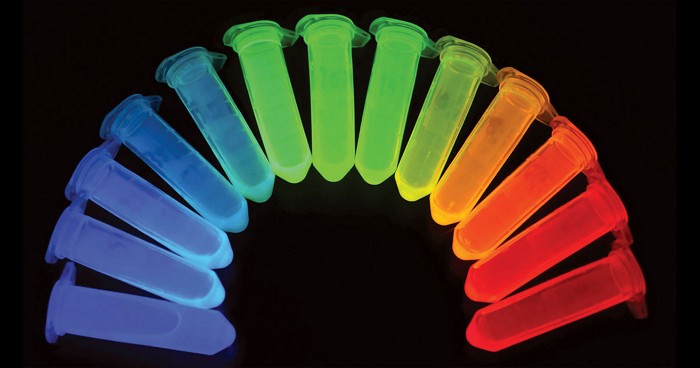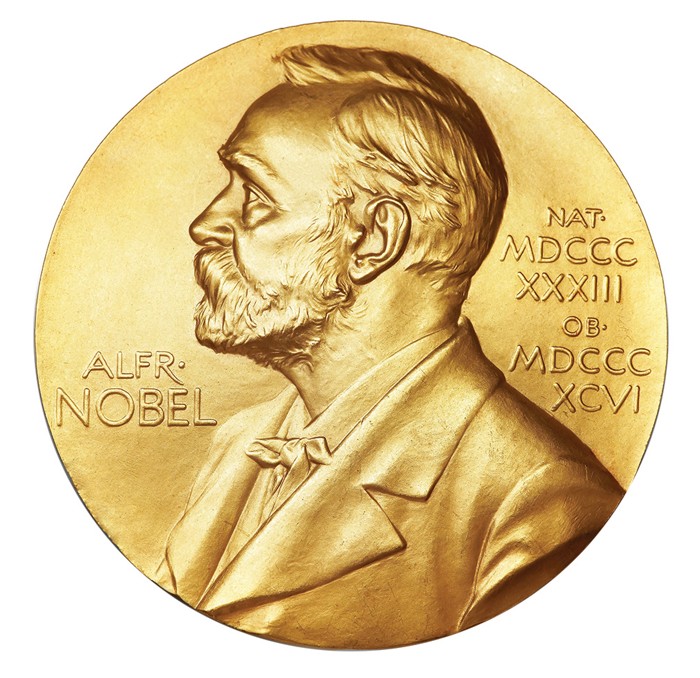Advertisement
Grab your lab coat. Let's get started
Welcome!
Welcome!
Create an account below to get 6 C&EN articles per month, receive newsletters and more - all free.
It seems this is your first time logging in online. Please enter the following information to continue.
As an ACS member you automatically get access to this site. All we need is few more details to create your reading experience.
Not you? Sign in with a different account.
Not you? Sign in with a different account.
ERROR 1
ERROR 1
ERROR 2
ERROR 2
ERROR 2
ERROR 2
ERROR 2
Password and Confirm password must match.
If you have an ACS member number, please enter it here so we can link this account to your membership. (optional)
ERROR 2
ACS values your privacy. By submitting your information, you are gaining access to C&EN and subscribing to our weekly newsletter. We use the information you provide to make your reading experience better, and we will never sell your data to third party members.
Nobel Prize
Chemists everywhere look forward to the Nobel Prizes
by Bibiana Campos Seijo
October 6, 2019
| A version of this story appeared in
Volume 97, Issue 39
It’s that time of year again: Nobel week. C&EN will stay on top of the news coming out of Stockholm each day and keep you up to date with comprehensive coverage throughout the week so you don’t miss a beat.
As is traditional, we’ll highlight not just the Nobel Prize in Chemistry, which is announced on Wednesday, but also the Nobel Prize in Physiology or Medicine and the Nobel Prize in Physics, which will be announced Monday and Tuesday, respectively. To get the news from us, you can check cen.acs.org for stories about the winners each day after the announcements. You can also sign up for our Nobel-dedicated newsletter, which will be issued on Oct. 9. Or you can wait until next Monday’s print issue to read our coverage of the three awards.
Ahead of the announcement of the Nobel Prize in Chemistry on Wednesday, there is still time to view C&EN’s Nobel predictions webinar, in which Deputy Editorial Director Lauren Wolf and Senior Editor Laura Howes are joined by Alison Narayan from the University of Michigan, Steven Townsend of Vanderbilt University, and Jess Wade from Imperial College London to discuss who might get the call this year.
So who are you rooting for? A tough question, I know. Will this be John Goodenough’s year, finally? The discovery of lithium-ion batteries has for decades now been called worthy of a Nobel, but so far it has not garnered the prize. Goodenough has a lot of people in his camp, and there’s even a Twitter hashtag, #weareallgoodenough. Despite the Nobel chatter, and regardless of whether he ultimately gets the prize, Goodenough says his work is not yet done. We recently recorded a lovely podcast with him that I highly recommend. Incidentally, if he wins, he will be the oldest-ever Nobel Prize winner, at 97.
I believe the odds that the Nobel Prize in Chemistry goes to a woman are low, given that only five women have received the award in 118 years. Most recently, Frances Arnold collected the award last year for her use of directed evolution to engineer enzymes. I can think of several worthy women to win this year. One of them is Stanford University’s Carolyn Bertozzi, who is credited for developing the field of bioorthogonal chemistry.
A different area of science that will likely recognize women if the field is awarded is CRISPR, for which Jennifer Doudna and Emmanuelle Charpentier could be part of a winning trio. I believe the field will be recognized at some point, but I don’t think it’s CRISPR’s time yet, partly because the patent litigation is still ongoing. And, as discussed in the predictions webinar, there is generally a lapse of on average 20–25 years between when the research is done and when the Nobel is awarded. So the odds are against CRISPR—which Doudna, Charpentier, and colleagues described in Science in 2012 (DOI: 10.1126/science.1225829)—making it to the top in 2019.
More-established fields that could be recognized include metal-organic frameworks, for which Omar Yaghi from the University of California, Berkeley, and Makoto Fujita from the University of Tokyo received the Wolf Prize in Chemistry in 2018; click chemistry, which would mean a second Nobel for K. Barry Sharpless at Scripps Research in California, who could possibly share it with Valery Fokin of the University of Southern California and Morten Meldal of the University of Copenhagen; and carbon-heteroatom cross coupling, for which the Massachusetts Institute of Technology’s Stephen L. Buchwald and UC Berkeley’s John Hartwig could get the nod. Any of these would likely satisfy chemists everywhere, as these discoveries are squarely within the chemistry realm.
But my money this year is on Goodenough. An emotional vote, perhaps, but we are running out of time to recognize the chemist behind a discovery that revolutionized electronics and our world.
Views expressed on this page are those of the author and not necessarily those of ACS.




Join the conversation
Contact the reporter
Submit a Letter to the Editor for publication
Engage with us on Twitter